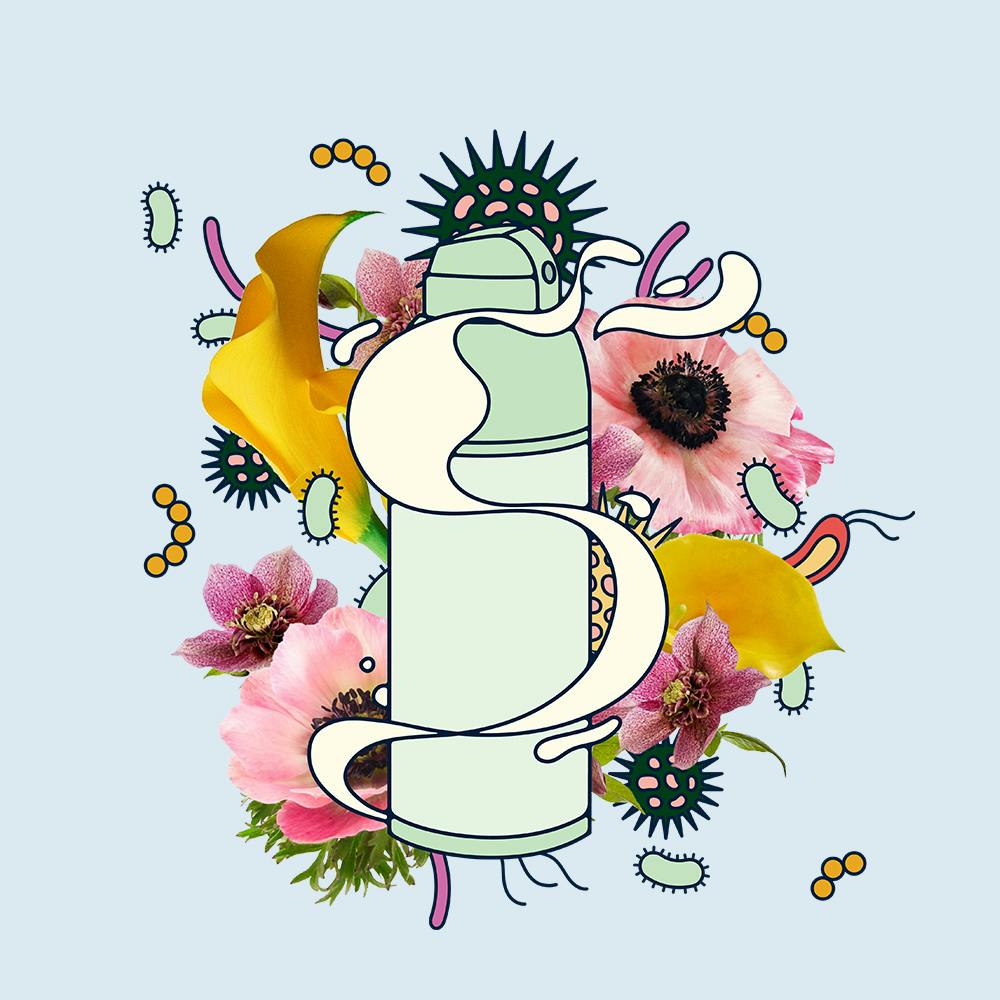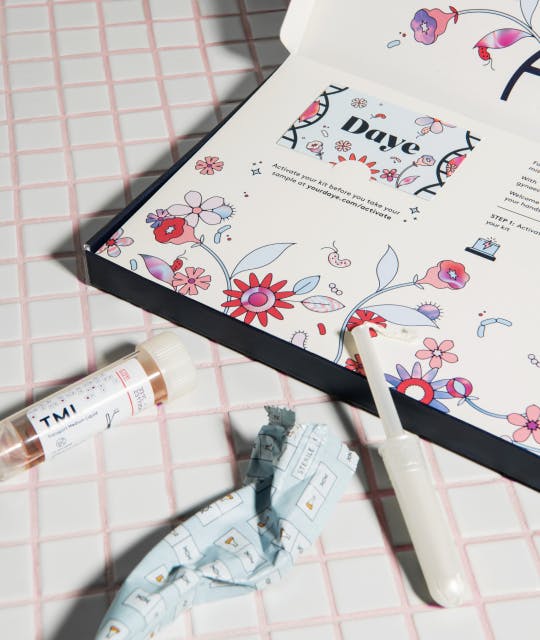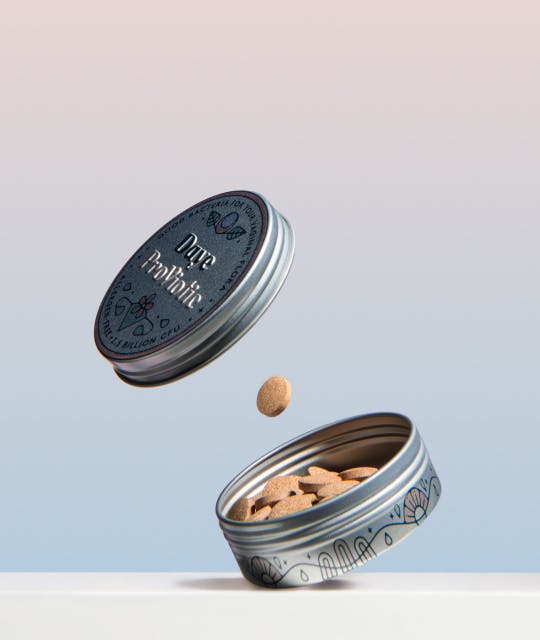Written by Liv Cassano
Illustrated by Sabrina Bezerra
Boost your vaginal and gut microbiomes
Daye's lactobacilli supplement enables you to look after your microbiome.
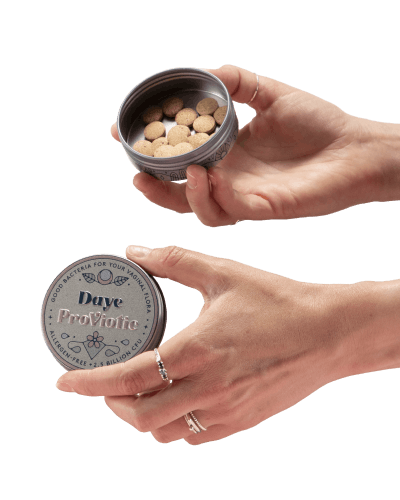
Lube is one of those things most people think they don’t need, but it’s a crucial (albeit overlooked) component to a healthy sex life—and a healthy vagina.
The key is finding the right lube for your needs, and your vaginal microbiome.
Discharge vs wetness
Your vagina is always producing fluid, usually made up of small quantities of cervical mucus and vaginal fluid (this is your discharge).
When you’re aroused, you sometimes produce a lot more vaginal fluid as part of your body’s physiological reaction to sexual stimuli—it’s what can make you feel “wet” when you’re turned on. But female arousal doesn’t always involve wetness.
Even though society’s (flawed) understanding of female pleasure puts all the focus on wetness, there are other aspects of female arousal. For example, in preparation for sex, the vagina elongates and widens (known as “vaginal tenting”), and increased blood flow to the vulva causes your labia and clitoris to engorge.

Understanding arousal non-concordance
Wetness is not a fool-proof indication that you’re ready to get it on, and it’s completely normal to feel drier than shortbread. Natural lubrication is sometimes part of the female sex response mechanism, and even though it’s an important one, it’s not the only aspect.
Arousal and wetness can happen at the same time, but they’re not mutually exclusive—this is known as arousal non-concordance. Basically, your genital response doesn’t always reflect how turned on you are… but luckily that’s what lube is for!
“There’s an association between lube and not having a healthy sex drive, or not being turned on by the person that you’re with,” says Dr. Sarah Welsh, gynaecology doctor and co-founder of the sexual wellness company HANX.
“People associate lube with postmenopausal women or illnesses, when actually that’s not the case. There’s not enough education about why lube is good, and it’s perpetuated by cultural messages saying that we shouldn’t need to have to use lubricant.”
HANX surveyed 5,140 people and found that 76% of respondents associated wetness with arousal. More so, 59% of the women surveyed said they regularly experience discomfort during sex, while 95% said they experienced it at some point—something Dr. Welsh encountered countless times while working in sexual health clinics.
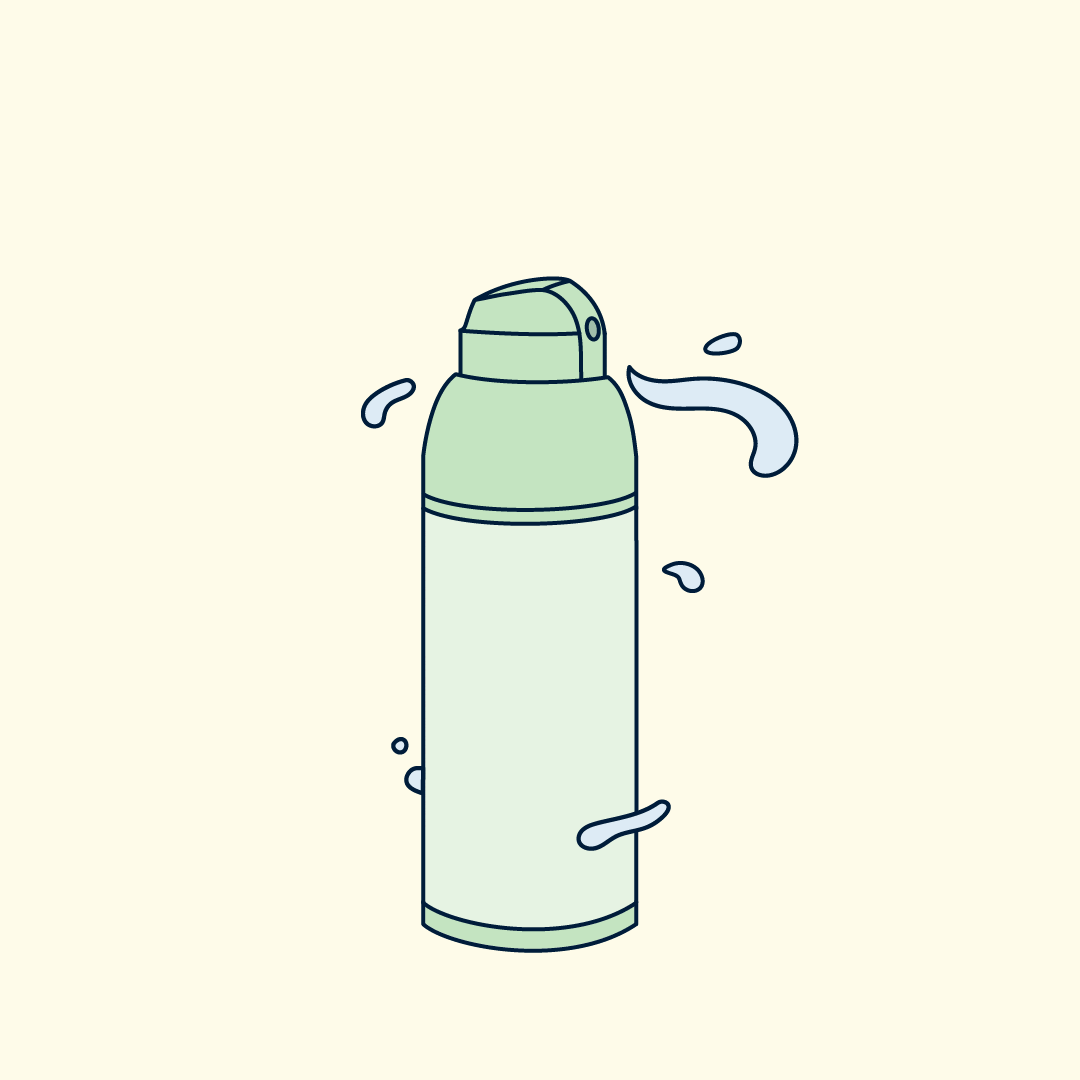
The importance of lube
Lubrication (natural or artificial) can increase pleasurable sensations, ease penetration, and reduce discomfort.
“Reducing friction ultimately is healthier for the vaginal wall during sex,” says Dr. Welsh. “If you’re having penetrative sex, lubricant can avoid any tears or abrasions, which would increase your risk of being susceptible to infections.”
Damage to the epithelium (the surface of your vaginal tissue) isn’t just uncomfortable, but it can also increase your risk of contracting STIs, as sexual acts that tear or break the skin carry a higher risk of STIs.
So using lube during acts that involve vaginal penetration not only make them feel better, but it’s also preventing damage to your vaginal tissue.
Lube and the vaginal microbiome
However, not all lubes are created equally. Some lube formulas contain ingredients that can disrupt your vaginal microbiome, so choosing the right lube is vital.
As a general rule of thumb, it’s a good idea to stay away from flavoured lube, as the sugar present can increase your risk of yeast infections. Above all, it’s important to choose a lube that has a pH similar to that of the vagina, between 3.8 and 4.5.
Another problematic ingredient commonly found in lube is glycerin, a sugar-alcohol that acts as a humectant and retains moisture. Although glycerin and glycerol temporarily add moisture (which is, you know, the whole point of lube), they do so by pulling said moisture out of the vaginal tissue.
This is because of something called osmolarity, which is essentially a water-based liquid’s ability to draw moisture out of tissues and cells. Glycerin is hyperosmolar (has a higher osmolality than your vaginal mucosa), so prolonged use of glycerin-based lubricants can actually dehydrate and damage vaginal tissue in the long run.
Oil-based lubes are not compatible with latex condoms, as oil can dissolve latex and break the condom. On that note, vaseline, baby oil or any other petroleum-based oils are a big no-go for your vaginal health, as they may increase your likelihood of getting a vaginal infections.
As for plant-based oils like coconut oil, the scientific jury is out on how it affects the vaginal microbiome (mostly because it’s never been tested).

HANX have recently launched their own water-based lube containing only 6 ingredients, one of them being lactic acid. Lactic acid is what your vagina produces to stay healthy and keep infections at bay, and maintains the vaginal environment acidic (that’s why HANX lube has a pH of 4.5).
On top of making a lube compatible with condoms, “we wanted to make a lubricant that was as near to the vagina’s natural lubricant as possible,” says Dr. Welsh.
The bottom line
This isn’t to say that using any ol’ lube will definitely and immediately give you a vaginal infection, but it’s a good rule of thumb to be conscious about what you put inside your vagina.
Technically, anything you shove up there has the potential to anger your vaginal microbiome, whether it’s lube, tampons, or CBD.
Although it’s wise to avoid ingredients like glycerin, flavours and oils, everyone’s vaginal microbiome is completely unique and will respond differently to ingredients as someone else’s.
There’s no guarantee that any one lube will work for everybody, but it’s a good shout to choose a lube that has been clinically tested and only contains body-safe ingredients.
TL;DR
- Wetness and arousal aren’t mutually exclusive! It’s totally normal to be turned on and experience vaginal dryness. That’s what lube is for!
- Lube can make sex more pleasurable and decrease discomfort caused by friction and vaginal tears.
- Choosing the right lube is vital, as anything that is inserted in the vagina can disrupt your vaginal microbiome and potentially put you at risk of infections.
- It’s generally a good idea to avoid lube that contains flavours or glycerin, and oil-based lubes when using latex condoms. Try to always use a lube that matches your vaginal pH.
Relevant products



